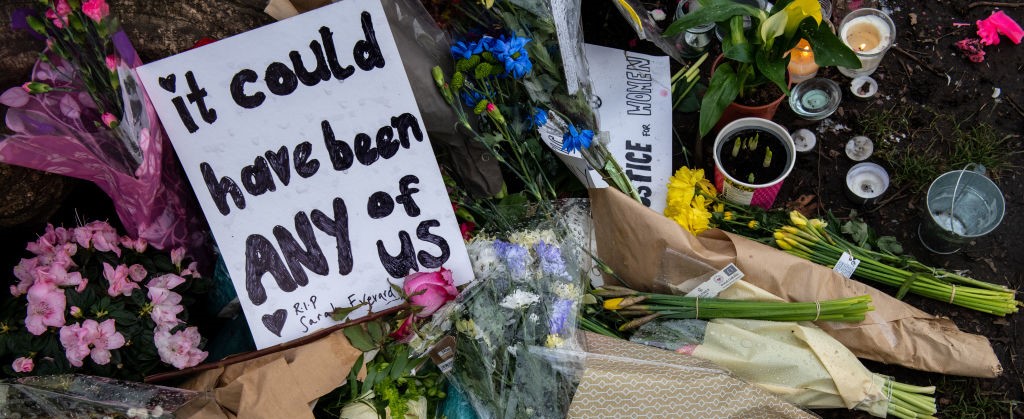Women – we got the power
In water cooler moments up and down the land everyone agrees that the fast approaching general election will be â€the closest ever’.
All political parties are now scrambling to maximise their vote on May 7. But on what will the result hinge?
Might it be the expected meltdown of the Lib Dems, the ugly populist rhetoric of UKIP, or perhaps the picture in Scotland?
Possibly, but more likely the result will depend on the participation of women.
Over nine million British women didn’t vote in 2010. If they turn up at the ballot box this time around then undeniably they will decide who occupies Downing Street.
Missing millions
“Women are the key to this election,” said Siobhan Endean, Unite head of equalities.
“We are the missing millions in terms of voters and women really could swing it.
“The fact is women have really suffered under this government. The disproportionate impact of the cuts agenda and austerity measures have meant that women have lost their childcare places, seen the closure of SureStart centres, equally they have lost their jobs – secure jobs with pensions and secure working hours.
“Instead we see more self-employment, zero hours’ contracts, low skilled work and evermore women doing two or three jobs just to make ends meet.”
She describes the situation faced by women in the UK as “critical” and urges a change of political direction.
“A new government will make a massive difference. If we don’t get rid of this government and replace it with a Labour government we are going to be in serious trouble when it comes to keeping our heads above water financially and economically.”
How might that happen? Well Endean makes it clear that simply hoping women will feel inclined to become more engaged is not enough.
“It’s really important that women participate in this general election, more so than any other election in the past,” she says.
“We need to make sure we are registered to vote, we are out there campaigning and raising the issues that affect us as women.”
And what about Harriet Harman’s Woman to Woman â€pink bus’ initiative – currently touring the country with the specific aim of getting out the female vote in as many as 70 key constituencies.
Endean believes the bus serves a purpose when it comes to engagement.
“What’s really important about the women’s bus is not the colour. It’s the fact that the bus signifies a political party that is prepared to go and talk to people about the issues that affect us,” she adds.
We meet at an event ahead of today’s International Women’s Day, (March 8), at which the election, and those who will contest, it is one of the main topics of discussion. Endean is clear on this – “politics needs to reflect the diversity of women in the UK,” she says.
“Politics is still seen mainly as white,” she says “and there aren’t enough black or Asian women in politics. Politicians need to be seen to be listening to black and Asian women about the massive impact that the cuts agenda has had on them as well.”
That’s a theme taken up by Kate Osamor, Labour parliamentary candidate for Edmonton in north London.
Taken for granted
She told me, “The experiences of BAEM women and the conversations they have with sisters in similar positions show that we are being taken for granted and aren’t seen as bringing value to the table by people in our parties.”
Osamor goes further, saying, “The fact a third of MPs went to private school shows disparity between the leaders of the country and the masses they represent.
“The majority of the leaders of the parties haven’t gone to the local comprehensive school, haven’t been brought up in a single parent household, haven’t lived off benefits and haven’t relied on social housing – all of those things that I have seen first-hand in my own community.
“The people currently at the top of the political parties simply have no experience of that and their policies reflect this.”
A few miles across the capital Tulip Siddiq – a British Bangladeshi – is defending the seat of Hampstead and Kilburn which was held with a wafer-thin 42 vote majority by Glenda Jackson in 2010.
“I’ve lost count of how many times inspiring women in my constituency have told me they don’t feel politics is for them,” she says. “It pains me every time I hear it because women have been hit hardest by the coalition.
“The only way we can reverse these policies and give women the rights and support we need, is if we elect a Labour Government.
“If every woman who didn’t vote before came out and voted on May 7 Parliament could look very different.”
Interestingly a recent poll for BBC Radio 4’s Women’s Hour found that a disproportionate number of women are undecided about whether to vote – 35 per cent compared to around 25 per cent of men.
That’s a finding which also worries Rosa Kallides, chair of Unite’s London and Eastern Region women’s committee.
“Women are the majority of part-time workers. They run the households and I think they are the voice that isn’t really heard,” she says.
“Women have to understand how important they are – that has to get across. If we can get these nine million women out there to vote it will have a positive effect on women, but also on working class people in general.”
One thing seems clear enough – the country’s future is in the hands of women. It is they – who once fought so hard to have a voice in society – who now hold the power in the land, should they choose to exercise it.
 Like
Like Follow
Follow

